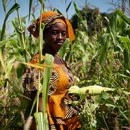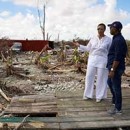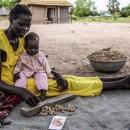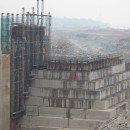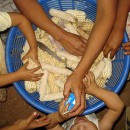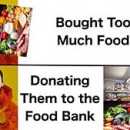Friday, June 9, 2023
News and Views from the Global South
Armed Conflicts
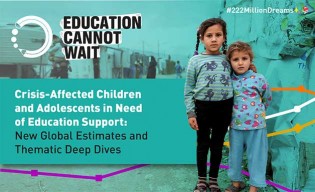
Number of Crisis-Impacted Children in Need of Education Support Rises Significantly: Education Cannot Wait Issues New Global Estimates Study
Armed conflicts, forced displacement, climate change and other crises increased the number of crisis-impacted children in need of urgent quality education to 224 million, according to a new Global Estimates Study issued today by Education Cannot Wait (ECW), the United Nations global fund for education in emergencies and protracted crises.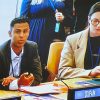
Conflict & Hunger Deeply Embedded in War-Ravaged Yemen
During the week of May 21, the UN held its annual week dedicated to the Protection of Civilians. The themes of the week’s events, particularly the side events, I had the honor of participating in, mirrored many of the pressing issues in Yemen, as conflict continues.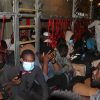
Waiting Game for Nigerian Students Awaiting Evacuation from Sudan
Seven weeks after the bloody conflict in Khartoum, Sudan started, and 41 days after the Nigerian government began the evacuation of residents studying there, students are still waiting to be airlifted back to their home country.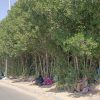
As Game of Thrones Rages in Sudan, the Neighbors Pay the Price
The conflict in Sudan is impacting the economy in Egypt, and those who make their living moving goods across the borders have spent weeks hoping the situation will normalize.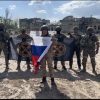
How Wagner Group, Mercenaries With a Wider Agenda, Impact Civil Society
The Wagner Group, a shadowy mercenary group that has been operating for many years in African countries such as Sudan, Mali, the Central African Republic, and other mainly Francophone countries, has again been thrust into the limelight due to its involvement in the Ukraine war on behalf of Russia.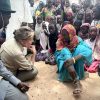
Khartoum is Falling – the Global Community Must Move Fast to Protect Children in their Darkest Moments
As unprecedentedly fierce armed battles play out on the streets of Khartoum, more than 600 people are dead, thousands injured, and over 1 million displaced.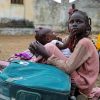
Violence Knows No Borders
Events in Sudan have been a constant topic of conversation in Cairo's coffee houses since the violence erupted there four weeks ago. The images of almost 30 Egyptian soldiers briefly detained in Sudan by Rapid Support Forces (RSF) militias and the death of an Egyptian diplomat in Khartoum caused a stir in Egypt.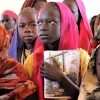
The Privilege of Making a Choice
A civilian student named Saber was caught in the crossfire in Khartoum. He had two choices: either flee and lose everything; or die. But within a moment his option to choose was violently denied: he died.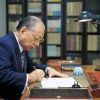
Statement on the G7 Hiroshima Summit, the Ukraine Crisis and “No First Use” of Nuclear Weapons
The Ukraine crisis, which in addition to bringing devastation to the people of that country has had severe impacts on a global scale—even giving rise to the specter of nuclear weapons use—has entered its second year. Against this backdrop and amid urgent calls for its resolution, the G7 Summit of leading industrial nations will be held in Hiroshima, Japan, from May 19 to 21.
A “New” Saudi Arabia? Changes on the Screen and in Reality
The World changes, though prejudices and misconceptions remain. In 1996, political scientist Samuel Huntington published The Clash of Civilizations and the Remaking of World Order, in which he predicted that people’s cultural and religious identities would become the primary source of conflict in a Post–Cold War World. Huntington’s allegations have been contradicted by a number of critics, among them American Palestinian professor Edward Said, who lamented their extreme cultural determinism, which omitted the dynamic interdependency and interaction of cultures. Said’s own Orientalism depicted a generalised “Western view” of Arab cultures as “static and undeveloped”, while European culture was considered to be “developed, rational, flexible, and superior.” Literature and movies have depicted Arabs as exotic men riding camels and horses through the desert, and their women as dangerously seductive objects of male desire. Eventually, the exotic men turned in to being terrorists, and/or depraved oil-rich magnates, while Muslim women were presented as veiled, enigmatic, and oppressed.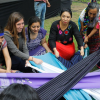
Reshaping Multilateralism in Times of Crises
The world is in permanent crisis mode. In addition to the consequences of the COVID-19 pandemic and the triple planetary crisis of climate change, biodiversity loss and pollution, the war in Ukraine and other violent conflicts, a worldwide cost of living crisis and an intensified debt crisis in more and more countries of the global South are affecting large parts of humanity.
In Sudanese Conflict, Either You Lose Everything, or You Die
On the first day of the Muslim holiday of Eid al-Fitr, Saber Nasr, a young Egyptian man of 20, developed a fever.
Safeguarding the Future of Independent Media – & Our Democracies
There’s a now familiar groan every time the lights go out in South Africa. Due to a critical shortage of electricity, the national power utility institutes a daily regimen of scheduled power cuts.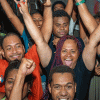
Fiji: Deeper Democracy or Continuing Danger?
It’s been a time of significant change in Fiji following the country’s December 2022 election. A close vote was followed by the formation of a new coalition government. Frank Bainimarama was out as prime minister after 16 years, replaced by Sitiveni Rabuka.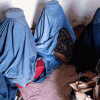
Afghanistan Special Envoys Should Hold Firm Line on Rights
On May 1, United Nations member states’ special envoys on Afghanistan will meet in Doha, Qatar to discuss how to address the Taliban’s latest restrictions on humanitarian operations.
The War in Ukraine Triggers a Record Increase in World Military Spending
The United Nations has warned that the February 2022 Rusian invasion of Ukraine has threatened to force up to 1.7 billion people — over one-fifth of humanity — into poverty, destitution and hunger. Long before the war, Ukraine and Russia provided about 30 per cent of the world’s wheat and barley, one-fifth of its maize, and over half of its sunflower oil. But the ongoing 14th-month-old war has undermined-- and cut-off-- most of these supplies.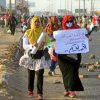
Sudan Conflict Marks Failure of Transition Plan
The current fighting in Sudan marks the failure of supposed processes for transition to democratic rule. The international community needs to learn the lessons of this catastrophe and work with civil society.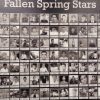
Myanmar’s ‘Forgotten War’ Lurches Deeper into Horror
Food is passed around a campfire, and a guitar strums as cool night air tumbles down mountain cliffs, relieving the jungle of its heat. A dozen or so young Myanmar activists – some having just travelled long distances evading military checkpoints, others already living in exile – have come together in a jungle camp for a training course with a difference. Instead of armed combat, their chosen role is enabling the overthrow of the military junta through non-violent means.
Russia’s Press Freedom ‘Worst Since the Cold War’ – Analysts
The arrest of a US journalist in Russia has not only sent a chilling warning to foreign reporters in the country but is a sign of the Kremlin’s desire to ultimately stifle any dissent in the state, press freedom watchdogs have warned.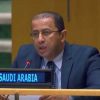
The Saudis’ New Geostrategic Doctrine
The resumption of diplomatic relations between Saudi Arabia and Iran, and the Saudis’ diplomatic overtures toward Syrian President Bashar al-Assad, are part and parcel of the Saudis’ overall reassessment of their geostrategic interests, which rest on three distinctives goals: regional stability, exerting greater regional and international influence, and uninterrupted oil exports. These three fundamental goals are tightly linked and are within the Saudis’ reach.
Detoxifying Security: Recommendations for the G7 Summit on Nuclear Weapons
The current war in Ukraine has shown that nuclear deterrence is deeply flawed. It relies on the assumption of “rational actors” in power and credibility of threats, which we know are far from reality, especially in times of conflicts.Next Page »

